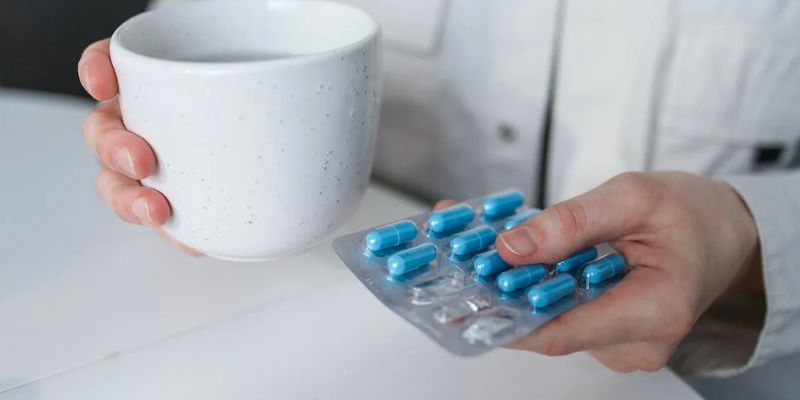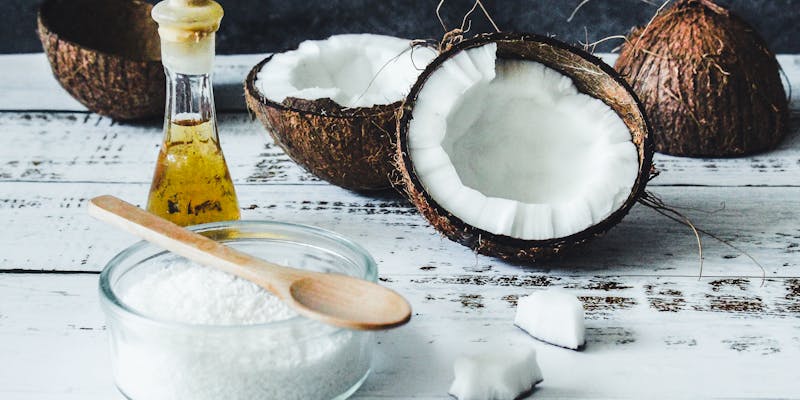You don't need to be a nutrition expert to know that vitamins are vital for good health. But with so many letters and numbers to keep track of, it can be tricky knowing which ones you need and why. Listen up because today we're breaking down one of the biggies - vitamin B1, a.k .a. thiamine. Whether you're feeling sluggish, having trouble focusing, or want to be proactive about your health, getting enough B1 should be on your radar. Get ready to become a total B1 buff after reading on!
What Is Thiamine and Why Do You Need It?

Thiamine, or vitamin B1, is an essential nutrient your body needs for many vital functions. Thiamine helps turn the carbohydrates you eat into energy and keeps your brain, muscles, and other organs working properly. It helps your body convert the carbs you eat into glucose for energy. It does this by assisting enzymes to break down carbs and glucose. Thiamine is essential for maintaining a healthy brain and nervous system.
It helps make neurotransmitters, the chemicals that send signals between nerve cells. Getting enough thiamine helps support proper brain development in children and may help maintain memory and cognitive abilities as you age. Thiamine aids digestion and a healthy appetite. It helps make stomach acid and enzymes needed to break down your food. Thiamine deficiency can lead to loss of appetite, nausea, and weight loss. Consuming thiamine-rich foods or supplements may help boost your appetite and improve digestion.
Top Thiamine-Rich Food Sources

Yeast and Pork: Yeast, such as nutritional yeast, and pork products like ham and bacon are excellent sources of thiamine. Just two tablespoons of nutritional yeast provide 30% of your daily needs. Pork chops, ham, and bacon give about 15-20% per 3-ounce serving.
Nuts and Seeds: Nuts and seeds are convenient on-the-go snacks that provide thiamine. Almonds, macadamia nuts, and sunflower seeds contain the most, with 1 ounce providing 10-20% of your daily needs. Peanuts and cashews also have a decent amount, at about 10% per ounce.
Legumes: Legumes like beans, lentils, and peas are high in thiamine. Black beans, lentils, and chickpeas contain the most, providing 10-15% per half cup cooked. Kidney beans, pinto beans, and black-eyed peas provide around 10%. Legumes are also high in protein, fiber, and several other B vitamins.
Grains: Whole grains are a staple source of thiamine. Brown rice contains the most, with one cup cooked, providing about 15% of your daily needs. Bread, especially whole wheat bread, also provides around 10% per slice.
Fish and Shellfish: Some fish and shellfish contain high amounts of thiamine. Salmon, tuna, and mackerel contain about 10-15% per 3-ounce serving.
Health Benefits of Getting Enough Thiamine
Boosts Energy LevelsThiamine helps your body convert carbohydrates into energy. Without enough thiamine, you may feel fatigued and sluggish. Getting sufficient thiamine in your diet can help boost energy levels and combat tiredness.
Supports Brain HealthThiamine is essential for your brain and nervous system health. It helps produce neurotransmitters necessary for memory, mood, and cognition. Low thiamine levels have been linked to conditions like Alzheimer's disease and dementia. Consuming thiamine-rich foods helps support optimal brain health and reduce the risk of age-related mental decline.
Aids Digestion: Thiamine helps produce stomach acid and enzymes for breaking down and digesting food. It is essential for absorbing many nutrients, including B vitamins, vitamin C, and iron. Not getting enough thiamine can lead to loss of appetite, weight loss, and gastrointestinal issues. Eating a diet high in thiamine helps promote good digestion and the absorption of nutrients.
Protects Vision: Thiamine deficiency has been linked to vision problems like glaucoma and cataracts. Consuming adequate amounts of thiamine, especially from whole foods, helps support eye health and reduce the risk of vision loss as you age. Thiamine helps provide antioxidant protection for your eyes and contributes to the production of protective pigments in the retina.
Signs and Symptoms of a Thiamine Deficiency
Fatigue and Low Energy: Thiamine helps your body convert nutrients into energy. With it, you'll often feel exhausted and run down. No amount of sleep aids. This fatigue can make it challenging to get through your daily activities.
Digestive Issues: Thiamine is essential for proper digestion, and a deficiency can lead to loss of appetite, nausea, and abdominal discomfort. You may experience constipation or diarrhea.
Muscle Weakness: Thiamine is vital in muscle contraction and nerve signaling. A vitamin deficiency can result in muscle weakness, pains, and cramps. You may need help walking or climbing stairs.
Irritability and Depression: Thiamine is essential for brain health and mood. Low levels of the vitamin are linked to irritability, mood swings, and even depression in some cases. You may feel restless or have difficulty concentrating.
Vision Problems: A thiamine deficiency can sometimes lead to vision issues like double vision or problems adjusting to changes in light. This occurs because thiamine is essential for eye health and proper signaling between the eyes and brain.
How Much Thiamine Do You Need Each Day?
The recommended daily thiamine intake depends on age, sex, and overall health. Most adults need between 1 and 2 milligrams per day to maintain healthy levels in the body.
For Men: Men ages 19 and older need about 1.2 mg of thiamine daily. However, as men age, their bodies may have a more challenging time absorbing thiamine from foods. Men over 50 should aim for closer to 1.5 mg per day from food and supplements to meet their needs.
For women, women ages 19 and older need about 1.1 mg of thiamine per day. Pregnant or breastfeeding women have higher needs, around 1.4 mg daily, to support the baby. Like men, women over 50 may need slightly more thiamine—around 1.3 mg per day—due to changes in absorption that come with age.
For Active People: If you live an active lifestyle or engage in regular, intense exercise, your thiamine needs may be up to 50% higher. Aim for 1.5 to 2 mg of thiamine daily to compensate for the extra energy you burn. Thiamine helps convert carbohydrates into energy, so more active people need more of it.
Easy Ways to Add More Thiamine to Your Diet
Taking supplements is an easy way to add more thiamine to your diet. Supplements may be necessary to meet daily thiamine needs, especially as you age. The typical dosage for thiamine supplements is 50 to 100 mg once per day. However, check with your doctor first, especially if you take any medications. Too much thiamine from supplements can be toxic in high doses.
Enable thiamine in your diet, essential for health, energy, and cell function. Eat thiamine-rich foods, limit excess alcohol and coffee, which can deplete thiamine, and consider a supplement if needed to ensure you're getting enough of this essential B vitamin daily.
Conclusion
So now you've got the full lowdown on thiamine. This little vitamin packs a big punch when converting food into energy and keeping your nerves and heart happy. Make sure to fill up on thiamine-rich foods like whole grains, beans, nuts, and meat. If you're feeling sluggish or having trouble concentrating, upping your thiamine intake could give you the boost you need. Remember, variety is vital - eat a balanced diet with a mix of thiamine sources for the best health benefits. Keep this nutrient on your radar, and your body will thank you!







